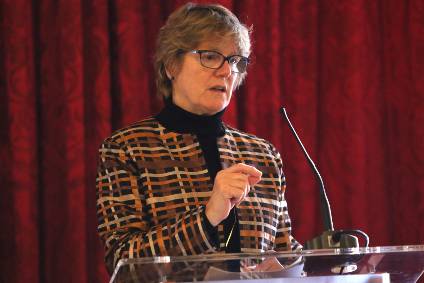There’s a lot to be said for the recommendations the UK’s outgoing chief medical officer has made on how the country’s government can hit its 2030 target on child obesity, writes Dean Best.
The UK’s outgoing chief medical officer this week attracted fierce criticism over her recommendations for how the country’s government can meet its target on child obesity – but, let’s be honest, more action from government and industry is necessary.
Professor Dame Sally Davies yesterday (10 October) issued 48 recommendations for the UK government to follow as it works towards its target of halving child obesity by 2030. Many mainstream media outlets roundly criticised one of those recommendations – a ban on eating and drinking on public transport – with Dame Sally labelled in some quarters as “Nanny-in-chief”.
That proposal is very unlikely to see the light of day – how would it be enforced? – but Dame Sally’s recommendations do carry some cogent ideas the UK government should seriously consider, including overhauling the VAT system to tax less healthy fare more consistently and banning the marketing of unhealthy foods around sporting events.
Dame Sally’s report was commissioned by the UK government, which had been showing signs in recent years of being serious about tackling the issue of child obesity. The Government set out a series of proposals, including the banning the sale of sweets and snacks at checkouts, fresh restrictions on advertising unhealthy food to children on TV and online and clear calorie labelling in foodservice outlets.
These proposals were sent out for consultation in March but are in limbo as Government bandwidth is taken up by Brexit. However, according to official figures issued this week levels of severe obesity among children in the last year of primary school have hit an all-time high.

US Tariffs are shifting - will you react or anticipate?
Don’t let policy changes catch you off guard. Stay proactive with real-time data and expert analysis.
By GlobalDataMeanwhile, manufacturers are making some progress in lowering the levels of sugar in some foods – but, in other areas, not enough headway has been made.
It is understandable Government attention is on Brexit but, once the issue is resolved, action needs to be made on trying to achieve a child obesity target that may not now be met.
And industry needs to work harder, faster. To be fair to the UK food industry, they don’t hide from acknowledging that. And, of course, reformulation efforts can be complex and expensive but some manufacturers are leaving themselves at the risk of regulation and of being seen by consumers as not serving their best interests.
Industry could help itself at a stroke by not indulging in initiatives as crass and opportunistic as this recently-announced sponsorship of the new, family-oriented, UK cricket tournament The Hundred.





